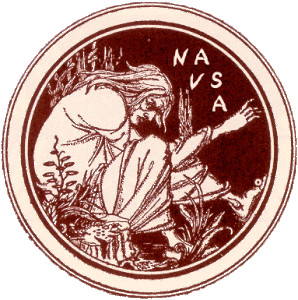
The Northeast Victorian Studies Association
April 8-10, 2022
The Northeast Victorian Studies Association seeks proposals on its theme of “Recovery” for its annual conference. At a moment when recovery from the COVID-19 pandemic is much talked of in the US, organizers’ call for papers asks how Victorian creators and creations— and those engaged with them— recovered, reconstructed, repaired, restored, revised, revived, or relapsed, and represented and theorized these processes. They welcome papers on specific cases of societal and individual recovery, and on the intersections of those categories. What practices of recovery are found in Victorian creations “in the wake” of slavery, to use Christina Sharpe’s term? What practices of recovery do we find in the “aftermath”—to use Olivia Moy’s term— of Victorian literature and culture itself, from specific novels to imperialist projects? How did Victorians and their creations imagine, aid, or obstruct recovery from epidemics, economic depressions, ecological disasters, or accidents? How did they engage post-bellum recoveries, or lack thereof, after Waterloo, Crimea, the 1857 Rebellion, the US Civil War, and other conflicts?
Organizers are interested in discussions of recovery as a critical, imaginative, and practical process among Victorian-era people, Neo-Victorian works, and scholars whose work touches Victorian and Neo Victorian subjects. How did recovery fuel Victorian projects in philology, archaeology, and historiography? How has art-making, including writing, functioned as a mode of recovery in an investigative sense, or a therapeutic one? How does recovery inform the medical humanities and narrative medicine? What are the periodizations, or rhythms, of recovery and its associated processes of repair, revision, relapse? How has recovery functioned as a mode of evasion, as a covering up?
Organizers invite reflections on recovery in the context of research, pedagogy, and academic institutions, and in terms of Victorian Studies itself. What role does recovery as a motivation for research play in the field today? What have been the effects of the prominent history of feminist recovery projects in Victorian Studies? How might recovery methods intersect with approaches from Indigenous studies? with transimperial studies frameworks? What varied models of recovery might be useful for the field today? for the humanities or academia more broadly? How have teachers’ and students’ experiences of the intersecting public health pandemics of COVID and racism informed a sense of what is worth recovering, repairing, revising, or leaving behind?
Proposals (no more than 500 words) by Oct. 15, 2021 (email submissions only, in Word format), submitted to: Mimi Winick, Chair, NVSA Program Committee: mwinick@hds.harvard.edu Please note: all submissions to NVSA are evaluated anonymously. Successful proposals will stay within the 500-word limit and make a compelling case for the talk and its relation to the conference topic. Please do not send complete papers, and do not include your name on the proposal. Please include your name, institution, email address, and proposal title in a cover letter. Papers should take 15 minutes (20 minutes maximum) so as to provide ample time for discussion – a priority at NVSA events.
Because of the ongoing pandemic and due care being taken by universities, the site is only tentatively Johns Hopkins University, with another site in Baltimore, Maryland as a back-up. In the unlikely and terrible event that we have another shutdown, the conference will run as scheduled, but in a remote format.
For more information on recommended topics, travel grants, and essay prizes please see: https://northeastvictorianstudies.files.wordpress.com/2021/08/nvsa-cfp-2022-recovery.pdf